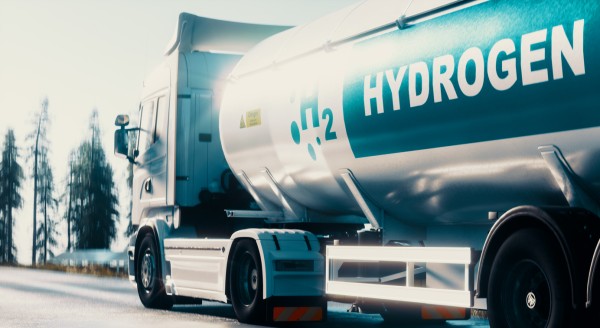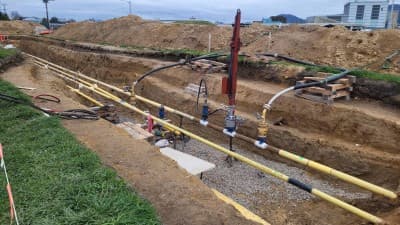Gas storage and flexibility is vital to support the generation of renewable electricity, particularly in the winter months, over peak demand periods, and is becoming more important with the addition of new variable wind and solar generation capacity. Gas is popular for cooking and heating homes and powering manufacturing, and it can power a huge range of applications, natural gas, renewable gas, or a blend of both.
Global demand is set to increase
Global gas demand is forecast to grow by more than 2.5% in 2024, reaching 4,200 billion cubic metres, according to a new report by the International Energy Agency (IEA). This is due to greater industrial use and fast-gaining US and Asian markets. The Asia Pacific region alone accounts for over half of the growth in global gas demand, because of rapid growth in economies like China, India and South Korea.
According to the report demand is expected to reach all-new highs in 2025 with a further 2.3% annual growth, which translates into just under 100 billion extra cubic metres. Industrial use of gas keeps growing as manufacturers move away from coal-fired burners, and growth continues in Asia Pacific.

Source: iStock image used for illustrative purposes only. Not an actual representation of a Clarus business.
Renewable gases are helping decarbonise long-distance transport
Some industries are particularly tough to decarbonise, and long-distance transport is one of them. Long-haul, heavy-duty vehicles aren’t easily electrified, so gases like biomethane and green hydrogen are providing an excellent lower-emissions fuel alternative.
The transport sector now accounts for almost half of all global biomethane consumption, and it’s expected to drive demand in future. In the European Union, for instance, the transport sector accounted for between a fifth and a quarter of total biomethane use in 2022. And in the USA, biomethane use in the transport sector has more than quadrupled since 2016.
Hydrogen is less often used as a fuel source for transport, but it’s starting to gather momentum, with demand increasing by 55% in 2023. Fuel cell electric heavy vehicles, powered by hydrogen, are a key driver of hydrogen demand, especially in China.
Here in Aotearoa, we have the Hiringa hydrogen refuelling station network already in action, allowing for green hydrogen to fuel our commercial trucks. For every diesel truck that is taken off the road, Hiringa estimates that it eliminates the equivalent emissions of between 50 and 150 cars. Renewable gas in the transport sector will play an important role in New Zealand reaching its decarbonisation targets.
Introducing e-methane using existing gas pipelines
Blending green hydrogen with natural gas is going to be a vital way to decarbonise gas networks around the world. Because the demand for gas continues to grow, switching to renewable gases keeps the gas supply going while reducing emissions over time. The IEA calls a hydrogen/natural gas blend ‘e-methane’, and says it can work well in shipping, industrial applications and residential gas supplies.
Across the globe, nations already have gas pipelines that deliver natural gas to homes and businesses. By using these existing pipelines, we can introduce lower-emissions gases “smoothly and flexibly” according to the IEA.
Earlier this year, Japan started a pilot programme to produce e-methane for city gas, and Finland has its own plan to produce e-methane for the heavy duty and shipping industries. Here at Clarus, we are planning our own pilot of residential blended hydrogen, or ‘e-methane’ progressing.
New Zealand’s gas demand also likely to rise
As we generate more renewable gases, New Zealand will be able to switch to lower-emissions gases and demand for these gases is likely to rise. Building biomethane and green hydrogen industries presents the nation with an enormous economic opportunity.
By using our existing pipeline infrastructure, we could use renewable gases to meet the gas demands of residential and industrial users, while working toward a net carbon zero future for New Zealand.
While renewable gases are still developing and not yet widely accessible, it’s reassuring to know that the work we’re doing today is already making a difference both now and in the future as we transition our networks towards renewable and net zero carbon gases by 2050.
To learn more about how Clarus is supporting the transition to a net carbon neutral New Zealand, visit Future of Energy.





